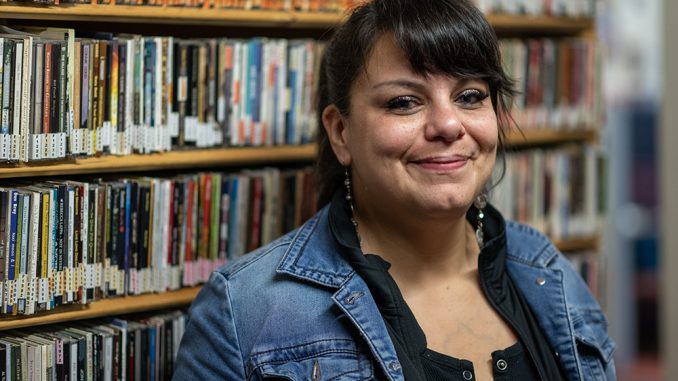
Advocate Beverley Planes says the system has failed people who use drugs.
BY MICK SWEETMAN The Discourse – Read the full source article here –
Nanaimo Community Action Team coordinator Beverley Planes says the overdose death of a man in a washroom at the Nanaimo Regional General Hospital’s emergency room happened because society ignores the humanity of people who use drugs. File photo courtesy of Mick Sweetman / CHLY 101.7FM Local Journalism Initiative.
Letter to the editor: The truth you don’t want to hear — the deaths are on us
Re: Patient overdose death at Nanaimo hospital ‘didn’t have to happen,’ doctor says
To the editor,
On Nov. 18, 2024, a person died in the bathroom at Nanaimo Regional General Hospital. Let that sink in. A life was lost not in a dark alley or hidden somewhere on the fringes, but in a hospital — supposedly the place where lives are saved. This person wasn’t an anonymous statistic. They were a human being — someone with family, with friends, with pain — and they died because we, as a society, chose to ignore their humanity.
Your Nanaimo newsletter
When you subscribe, you’ll get Nanaimo This Week straight to your inbox every Thursday — giving you the first peek at our latest investigations, local news updates, upcoming events and ways to get involved in our community.Subscribe
This isn’t an isolated incident. It’s not even a surprise. It’s what happens when we continue to turn our backs on the people who need us the most. Before you start thinking it’s their fault for using drugs, take a hard look in the mirror. When you refuse to provide harm reduction services, when you label people as “addicts” and walk away, you are complicit in their deaths.
Let’s be crystal clear: people don’t choose addiction, addiction chooses them. Whether it’s trauma, neglect, systemic failure, or just the crushing weight of living in a society that writes off certain lives, addiction is never a choice — it’s the consequence of a life gone horribly wrong. Yet, time and time again, we’re told to let them die and that “they brought it on themselves.”
Let me ask you, what would you do if you were drowning and the only thing that could keep you afloat was something others told you to avoid? Would you swim to the edge and ask for help? Or would you cling to whatever scraps you could find to stay alive? That’s what people are doing when they turn to substances, they’re surviving in a world that has forgotten them. And when they beg for help — when they try to set up overdose prevention sites to keep people alive — we send security guards, we send the police, we shut them down.
We can talk about the dangers of drug use until we’re blue in the face, but the reality is we’ve let people die because we refuse to even acknowledge that their lives are worth saving. On November 18, this person didn’t die in a park, they died at the very hospital we’ve been told is there to help. But instead of supporting overdose prevention, the hospital’s security removed a pop-up OPS.
And what did that accomplish? Another death. Another person who trusted the system and was betrayed. Another family mourning the loss of someone they loved. Does that feel like progress to you? Or is it just more of the same neglect that has led to a public health emergency we’re too afraid to face?
This isn’t a problem that exists “out there” in some distant corner of society. It’s happening in our hospitals, on our streets and in our communities. Every life lost is a failure of a system that could have done something to save them. It’s not just the people using substances who are failing. It’s all of us. Every time we choose to ignore the reality of addiction, every time we shut down solutions that could save lives, we are complicit.
You want to talk about preventing drug use? You want to talk about “getting rid of the problem”? The problem isn’t the people who use substances, it’s the systems that failed them and the people who continue to turn a blind eye to their suffering.
People who use substances are not criminals. They are our neighbors, our friends, our loved ones. They deserve the same dignity, care and compassion as anyone else. If you don’t believe that, then you need to ask yourself why you think it’s acceptable for anyone to die because we couldn’t be bothered to help them.
The deaths are on us. The system has failed, and we are all complicit if we continue to ignore it. This is a crisis, not a punishment. If we don’t change, more people will die. In hospital bathrooms. Alone. And we will have only ourselves to blame.
Sincerely,
Beverley Planes
Daughter, sister, cousin, auntie, mother, human.
Person with lived and living experience of substance use.
Peer research associate, Canadian Institute for Substance Use Research at the University of Victoria.
Nanaimo Community Action Team coordinator.
Leave a Reply
You must be logged in to post a comment.